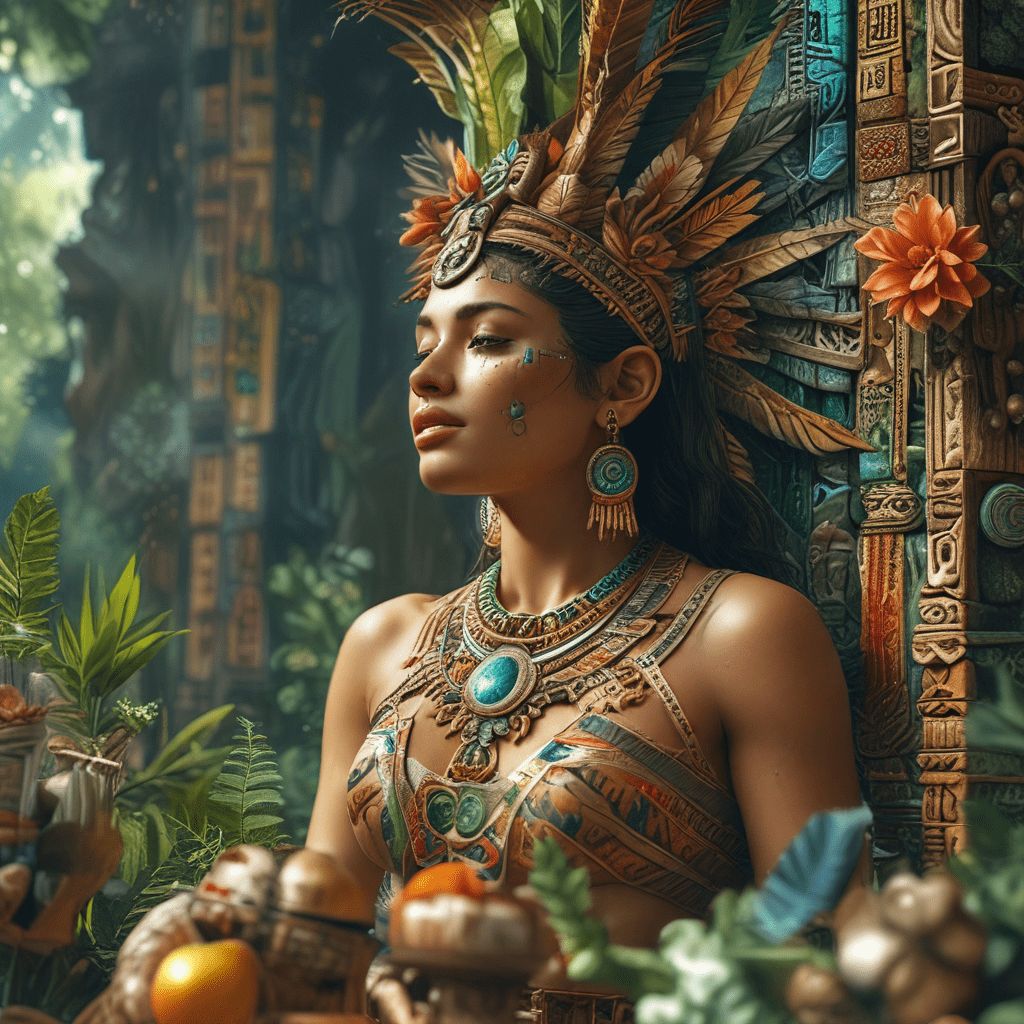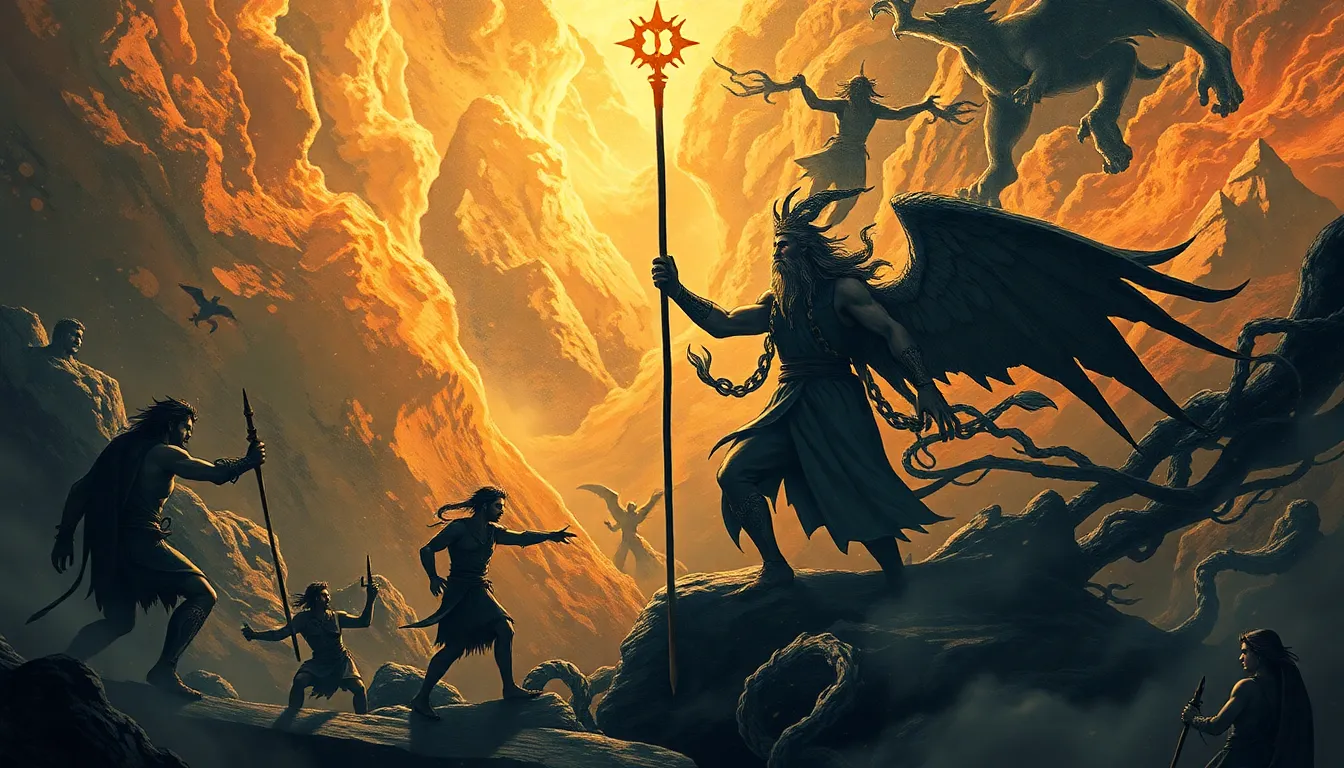Moral Myths and the Nature of Legacy: Lessons from Legends
I. Introduction
Moral myths play a crucial role in shaping cultural narratives and collective values. These stories, often passed down through generations, provide frameworks for understanding right and wrong, influencing both individual behavior and societal norms. They encapsulate the essence of moral lessons that resonate across time and space.
The concept of legacy is intertwined with these moral myths, as it reflects the values and lessons we choose to impart to future generations. Legacy can be seen as both personal, relating to individual achievements and character, and collective, embodying the shared ideals of a community or culture.
This article aims to explore how legends not only shape our understanding of morality but also impact the legacies we leave behind, encouraging reflection on the values that define our lives and societies.
II. Defining Moral Myths
A. What constitutes a moral myth?
A moral myth is a narrative that conveys ethical lessons through storytelling. It often features heroic figures, moral dilemmas, and resolutions that highlight virtues such as courage, justice, and compassion. These myths serve as tools for moral education, helping individuals navigate complex ethical landscapes.
B. The role of storytelling in moral education
Storytelling is an ancient tradition that has been used to teach moral lessons. Through engaging narratives, listeners can empathize with characters, reflect on their choices, and consider the implications of various actions. This method makes moral lessons more relatable and memorable.
C. Examples of moral myths across cultures
- The story of Prometheus in Greek mythology, which teaches about the consequences of defiance and the value of knowledge.
- The tale of the Tortoise and the Hare, a fable that emphasizes the importance of perseverance over arrogance.
- The Indigenous story of the Two Wolves, illustrating the internal battle between good and evil within each person.
III. The Nature of Legacy
A. Understanding legacy: personal vs. collective
Legacy can be understood on two levels: personal and collective. Personal legacy refers to the impact an individual has on their family, friends, and community, often shaped by their actions, values, and achievements. Collective legacy encompasses the shared history, cultural values, and traditions of a society, influencing how future generations perceive their identity.
B. The relationship between legacy and moral values
Legacy is deeply rooted in moral values. The principles and ethics upheld by individuals and societies shape the legacies they leave behind. A legacy grounded in strong moral values can inspire future generations to uphold similar ideals, fostering a cycle of positive influence.
C. How legacy influences future generations
The legacies we leave not only reflect our values but also serve as guiding principles for those who come after us. They impact the way future generations approach challenges, make decisions, and define their own moral frameworks.
IV. Legendary Figures and Their Moral Lessons
A. Overview of key legendary figures
Throughout history, many legendary figures have emerged as symbols of moral integrity and social justice. Notable examples include:
- King Arthur: A symbol of nobility and chivalry, his story emphasizes the importance of justice and leadership.
- Robin Hood: The legendary outlaw who stole from the rich to give to the poor, representing the fight against injustice.
- Mahatma Gandhi: A modern legend who advocated for non-violent resistance and civil rights, illustrating the power of peace and perseverance.
B. Analysis of the moral lessons derived from their stories
These figures impart lessons about courage, justice, compassion, and the importance of standing up for what is right. Their stories serve as moral compasses, guiding individuals in their own ethical journeys.
C. How these legends have shaped societal norms
The narratives surrounding these legendary figures have significantly influenced societal norms, instilling values such as fairness, empathy, and the pursuit of justice. Their legacies continue to inspire movements for social change and ethical leadership.
V. The Role of Cultural Context in Moral Myths
A. How cultural background influences the creation and interpretation of moral myths
Cultural context plays a pivotal role in shaping moral myths. Different societies prioritize various values, which in turn influence the stories they tell. This cultural lens affects not only the creation of myths but also their interpretation and relevance.
B. Case studies of moral myths from different cultures
Consider the following examples:
- Greek mythology: Themes of hubris and fate serve as cautionary tales about human limitations.
- Indigenous stories: Often emphasize harmony with nature and communal responsibility.
C. The universal themes present in diverse legends
Despite cultural differences, many legends share universal themes such as the struggle between good and evil, the importance of community, and the quest for justice, highlighting the commonality of human experience.
VI. The Evolution of Moral Myths Over Time
A. How historical events shape the evolution of moral myths
Historical events often catalyze the evolution of moral myths. As societies change, so do their values, leading to the reinterpretation of existing legends or the creation of new ones that reflect contemporary issues.
B. The relevance of ancient legends in the modern world
Ancient legends continue to resonate today, providing insights into modern dilemmas. They serve as frameworks for understanding current moral challenges, offering lessons that remain applicable across time.
C. Examples of contemporary reinterpretations of classic myths
Many modern stories draw inspiration from classic myths, often reimagining characters and lessons to address current social issues. For instance, films and literature frequently adapt ancient tales to reflect contemporary themes such as equality and justice.
VII. The Psychological Impact of Moral Myths on Individuals
A. The role of myths in personal identity formation
Moral myths play a significant role in shaping personal identity. Individuals often identify with legendary figures and their stories, internalizing the values and lessons they embody, which influences their self-perception and ethical beliefs.
B. How legends influence moral decision-making in everyday life
Legends serve as touchstones for moral decision-making. When faced with ethical dilemmas, individuals may recall the actions of legendary figures, using their stories as guides for their own choices and behavior.
C. The power of narrative in shaping ethical beliefs
The narratives surrounding moral myths can profoundly impact ethical beliefs. By engaging with these stories, individuals cultivate empathy and understanding, leading to more informed and compassionate moral choices.
VIII. Critiques of Moral Myths
A. The potential dangers of adhering too rigidly to moral myths
While moral myths can provide valuable lessons, rigid adherence to these narratives can lead to dogmatism. This inflexibility may hinder critical thinking and the ability to adapt ethical beliefs to new circumstances.
B. Discussion on the oversimplification of complex moral issues in legends
Many moral myths simplify complex moral issues, presenting clear-cut distinctions between good and evil. This oversimplification can distort understanding and lead to misguided judgments in real-life situations.
C. Balancing myth with critical thinking and contemporary ethics
It is crucial to balance the insights gained from moral myths with critical thinking and contemporary ethical frameworks. Engaging thoughtfully with these narratives allows for a more nuanced understanding of morality.
IX. Lessons Learned: Applying Moral Myths to Modern Challenges
A. How moral myths can guide contemporary ethical dilemmas
Moral myths can provide invaluable guidance in addressing contemporary ethical dilemmas. They offer a lens through which we can analyze issues like justice, equality, and



